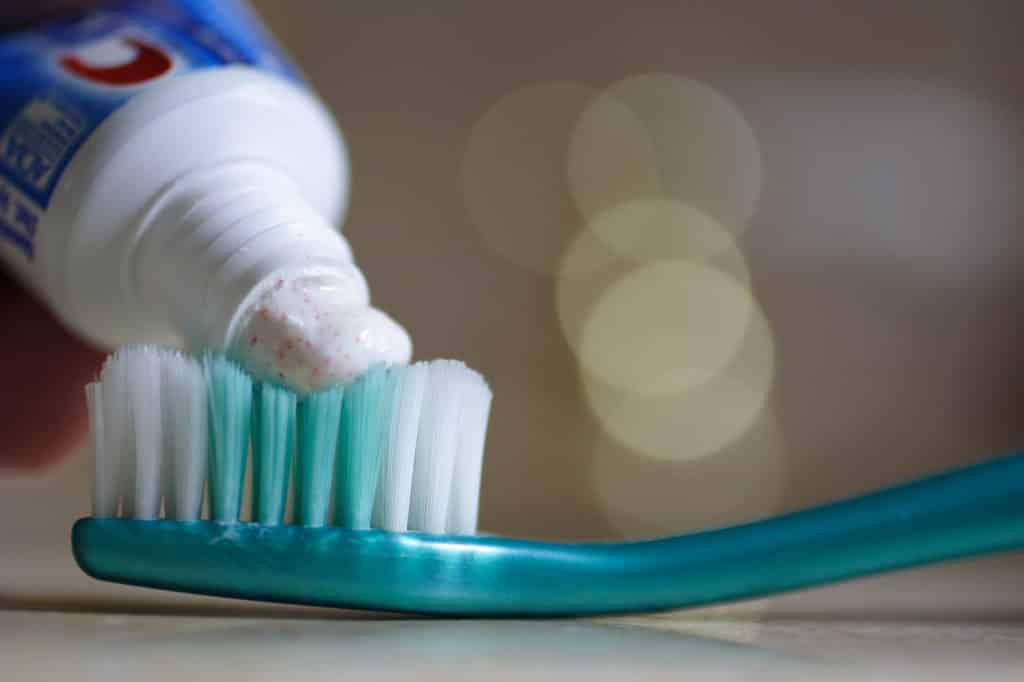While most kinds of toothpaste can help reduce tartar, prevent cavities, and improve gum health, some are arguably better than others. This is especially true when it comes to fluoridated toothpaste versus non-fluoridated toothpaste. For those who may not be as familiar with fluoride, it is a naturally-occurring mineral that not only protects against cavities but also aids in repairing early-stage tooth decay as well. Fluoride is in our drinking water and many of the foods that we eat; however, the highest concentration is found in fluoride-containing toothpaste. Even though non-fluoridated toothpaste can remove tartar, freshen breath, and whiten teeth as well, fluoridated toothpaste is a better choice for all-around better oral health.
HOW MUCH FLUORIDE IS NEEDED FOR HEALTHIER TEETH?
According to a study published by the National Institute of Health, the primary agency of the United States government responsible for biomedical and public health research, fluoride-containing toothpaste needs to have a minimum fluoride concentration of 1,000 parts per million (ppm) to protect against cavities and to undo early-stage tooth decay. That said, most of the popular toothpaste brands on the market contain somewhere between 1,350 and 1,450 ppm of sodium fluoride or sodium monofluorophosphate, both of which can contribute to healthier, stronger teeth.
WHAT MAKES FLUORIDE SO EFFECTIVE WHEN IT COMES TO IMPROVING ORAL HEALTH?

Brushing twice per day with toothpaste that contains fluoride can help make enamel, the hard surface layer of the teeth, less susceptible to the acids and bacteria in our mouth that can cause cavities. It can also remineralize tooth enamel that has already been decalcified by plaque acids and other oral bacteria. Fluoride-containing toothpaste also prevents cavities and improves oral health by contributing to the following:
- Stimulating fluorapatite production (stronger and more acid-resistant enamel)
- Slowing or preventing the growth of oral bacteria
- Preventing cavity-causing bacteria from bonding to teeth
IS FLUORIDE SAFE?
Although there have been claims made about the ill-effects associated with using toothpaste that contains fluoride, such as reduced bone density and an increased risk for developing certain cancers, most are unsubstantiated. Also, most dentists and hygienists are proponents of brushing twice a day with fluoridated toothpaste for better oral health. What’s more, the CDC (Centers for Disease Control and Prevention) has named fluoride as one of the greatest modern-day achievements when it comes to maintaining good oral health.
CHOOSING THE RIGHT FLOURIDE-CONTAINING TOOTHPASTE
When it comes to choosing the right fluoride-containing toothpaste, it often comes down to a matter of personal preference as most popular brands contain some degree of fluoride, especially those with the ADA (American Dental Association) Seal of Acceptance. Nonetheless, you will still want to ensure that the toothpaste you choose has a fluoride concentration of at least 1,000 ppm.
In summation, brushing your teeth twice per day with a toothpaste that contains fluoride can go a long way toward lowering your risk of developing cavities and improving your overall oral health. However, it can’t repair large cavities or reverse other serious dental problems. That said, if you haven’t been to the dentist in a while, you’re encouraged to schedule an appointment with Mountain View Dental today.

